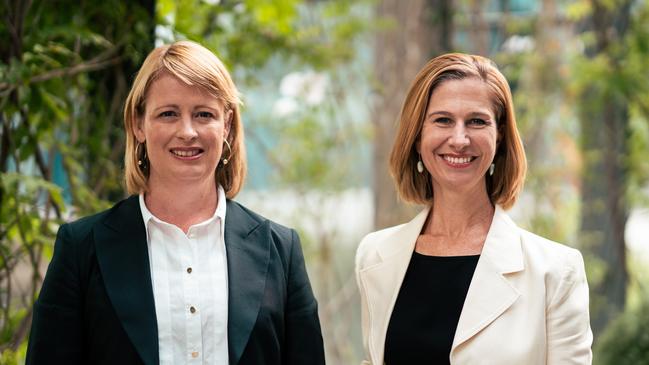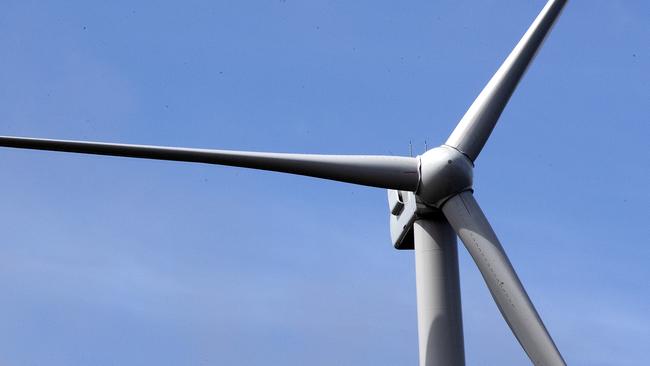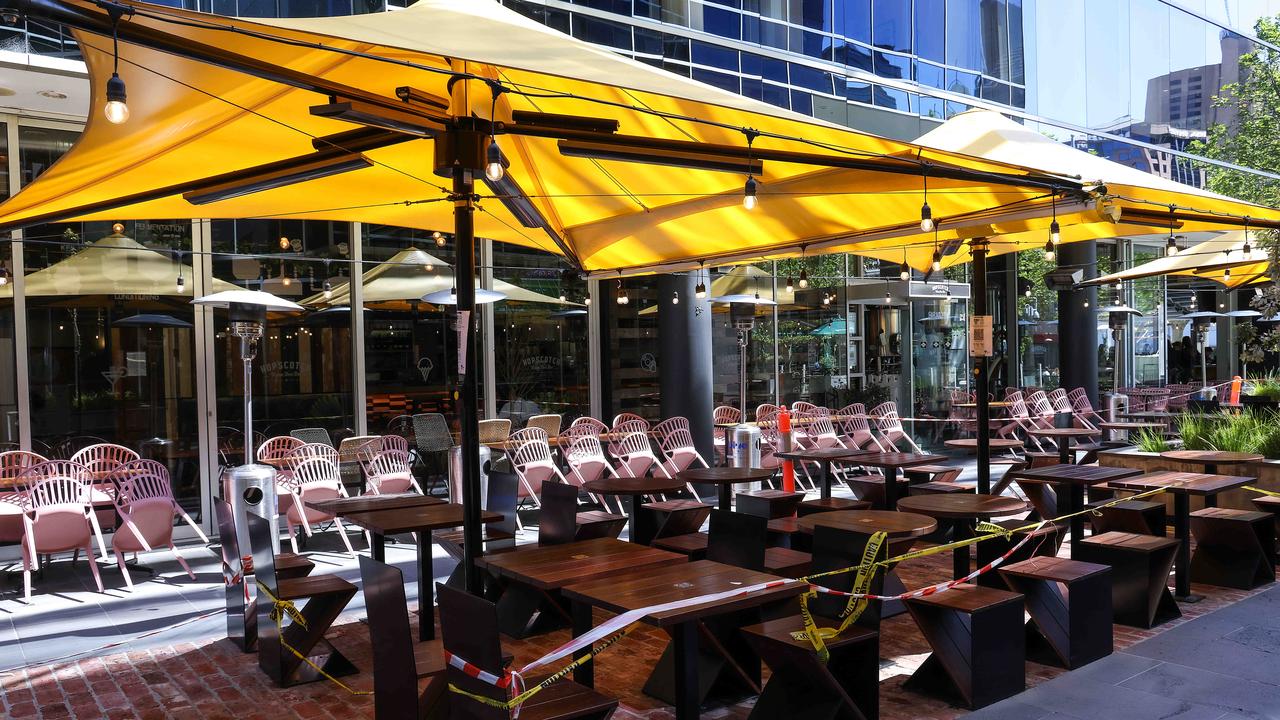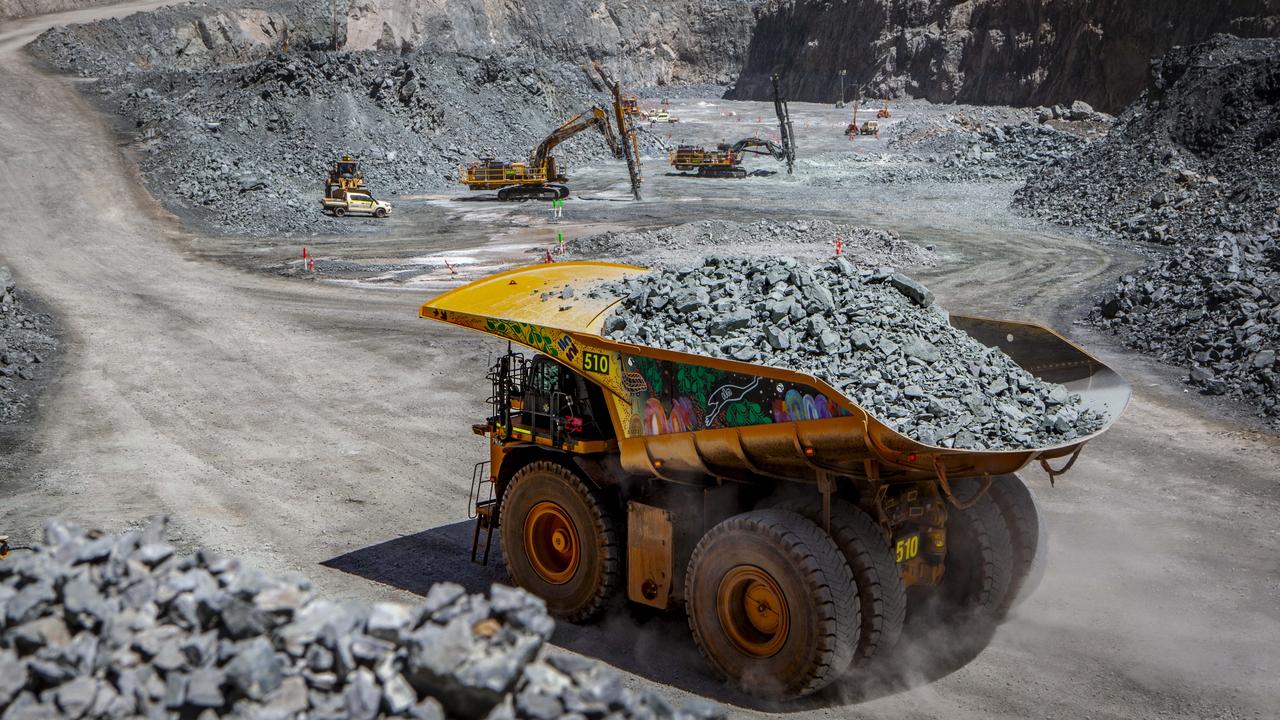Certainty over energy investing is critical: Arup Australasia’s Kate West and Kerryn Coker
The infrastructure giant’s joint Australian bosses Kate West and Kerryn Coker says green energy remains a big opportunity for the economy.

Economy
How would you rate the momentum of the Australian economy as
we head into 2025? Official forecasts have Australia trimming interest rates from
the first half of calendar 2025, is that consistent with your view? What are you
seeing around inflation in your own business?
As we head into 2025, the Australian economic outlook presents a mixed picture. While official forecasts suggest a trimming of interest rates from the first half of 2025, which aligns with our expectations, the economic outlook for the infrastructure sector remains challenging.
We are witnessing a varied landscape across different states and sectors. For instance, the economies of Queensland, Western Australia, and South Australia are performing well, with others showing lower rates of growth and more challenging operating conditions.
The rate of spending on traditional infrastructure projects is likely to continue to slow, and the lack of visibility and a somewhat choppy pipeline have compounded the difficulty of balancing workload with capacity – a challenge that remains pervasive across our industry.
With infrastructure accounting for 9-10 per cent of Australia’s GDP, smoothing our pipeline plays a crucial role in boosting productivity. Streamlining the approvals process to bring projects to reality more quickly and to provide investor certainty needs to be a priority for Australia, particularly in the energy sector as public and private sectors strengthen their commitments to net zero.
Outlook
What excites you heading into 2025? Are you likely to increase, hold
steady, or trim your investment spend?
As we look ahead to 2025, we are optimistic that Australia will continue to make material advancements to tackle some of society’s most complex challenges. The commitment from both government and the private sector to address climate change through the decarbonisation of transport infrastructure and the acceleration of the renewable energy transition are two areas where our technical skills can drive change and help Australia embrace the opportunities associated with a greener future-focused economy.
We are continuing to invest in researching new materials and leveraging our role in the sector to apply them at scale, such as the use of coffee grounds and soft plastics in concrete to generate more sustainable outcomes on major infrastructure projects. Research and innovation into design and construction approaches, harnessing digital tools in new ways, and using AI to enhance productivity are exciting priorities for the year.
As a global firm, Arup has the advantage of sharing knowledge and skills from around the world to help unlock some of Australia’s most pressing challenges. This includes advancements and innovations in areas like sustainable aviation fuels and biodiversity net gain legislation – both areas where we are partnering with local clients and the public sector to accelerate our response domestically while delivering social, economic and environmental benefits for Australians.

We are working at the forefront of emerging, future-focused industries, including solar and wind. We anticipate that major renewable energy project approvals will gain momentum through 2025, and we are investing heavily in our energy business through recruitment and reskilling to meet the growing demand for technical expertise across the full spectrum of the renewable energy transition.
Additionally, we are collaborating with public and private sector clients across the built environment for city-shaping infrastructure projects like Sydney Metro, Brisbane Metro, and High Speed Rail, and the infrastructure for the Brisbane Olympic in 2032. Our focus is on reducing carbon emissions, connecting communities, and improving the resilience of our infrastructure and the liveability of our future cities. Another exciting growth area for us is the AI-driven data centre boom where we are investing heavily to respond to the growing demand for skills and specialist expertise. Future-proofing data centres requires looking further ahead at energy needs and climate resilience, so sustainable design will be a factor in retaining investment and long-term value.
We are also watching closely to see how Australia’s bid to host COP31 falls, and should it land favourably for Australia and the Pacific, we would be ready to capitalise on the opportunity to significantly boost investment in domestic and regional climate solutions and accelerate positive change.
Reform
As we move into an election year, in your mind, what’s the single
biggest lever that can/should be used to lift Australia’s competitiveness or
productivity? This could be across any area from labour market, tax reform,
training or other areas to encourage investment.
As Kate mentioned in The Australian at the beginning of 2024, one of the biggest challenges for Australia in addressing productivity is attracting and retaining the skills needed for new and emerging industries. For example, the energy transition already draws on a limited pool of global talent, and as it accelerates, we need a multi-pronged strategy to not only train the next generation of engineers but also re-skill our current workforce.
Relevant to this topic is research recently published by Arup, which examined the competitiveness of cities around the world. The report, “Redefining Competitive Cities,” found that traditional measures of competitiveness are evolving. With more cities facing climate-related challenges such as floods and urban heat, those best positioned for future success are the ones that are advanced in planning for climate shocks and stresses.
Australia has made significant progress in advancing climate policies including those providing a framework for our transition to a lower-carbon economy and protecting our environment. However, clear and consistent policies and regulations from the government are vital to continue attracting skills and investment that will underpin our future economic growth and make maximum use of our abundant and unique natural resources. We are seeing the benefits of these policies in places like South Australia, which is well advanced in its renewable energy transition.
If we stay on course, we believe Australia has unprecedented opportunities to rise to the forefront as one of the world’s most progressive, advanced, and competitive economies over the coming decade. Conversely, a reversal of these policies would undermine our chances of long-term economic prosperity. Infrastructure investment is integral to our economic growth as well as our quality of life, and must be central to correcting our flagging productivity.
Geopolitics
Will a Donald Trump presidency have a potential impact on your
business or sector (tariffs or streamlined regulation)? Does geopolitics drive a
bigger part of your decision-making?
As a firm with a global footprint, geopolitics is an omnipresent consideration in our business, but not a distraction. The borderless approach we have in doing business helps us respond to a variety of geopolitical conditions across the world. This enables us to navigate risks, seize opportunities, and remain resilient and future-focused, ready to adapt to the evolving landscape of international relations and policies.
We have a large presence in the United States, with over 2,000 staff across 12 offices working on large-scale infrastructure, high-performance and decarbonised buildings, supporting the energy transition, and developing data centres and networks to support the growth of AI. As you would expect, our Americas teams are closely monitoring the implications of political shifts and responding to changing risks and opportunities.
People
Has your organisation’s approach to flexible working – including
working from home – evolved during the year. Is this likely to change further into
2025?
We have remained consistent in our commitment to support our people to work in the ways that deliver the most creative and innovative work for our clients, while implementing policies that proactively foster a safe and inclusive workplace. Flexible working conditions support increased participation of women in the workforce, as we know caring responsibilities disproportionately fall to them.
Our approach is to balance the offer of flexible working with a belief that our people do their best work, and are better able to learn and develop, when we are together either in our offices or on site collaborating with clients and partners. In line with this we continue to invest in our office portfolio, recently opening new offices in Adelaide and Perth with Brisbane to follow in the New Year, where we have created welcoming, engaging workspaces that reflect our sustainable development commitments and support our people in the ways we know they work. That means zones for focused work, collaboration spaces, better tech for virtual meetings, and features that support health and wellbeing. This investment in our new offices highlights our commitment to supporting collaboration, fostering excellence and innovation, and ultimately enabling our people to do their best work.
Technology
Where is your organisation along the AI journey – is it in the
developmental stage, or are you now using the technology at scale across your
business? If so, are benefits matching the promise?
Digital technology, like sustainability, is driving a fundamental shift in how engineers work at all levels of our business.
With the built environment responsible for 37 per cent of global emissions, greater even than transportation at 25 per cent, AI and advanced digital technology hold the key to developing vital lower-carbon and nature-positive major infrastructure; speeding up the design of complex structures; and improving the whole management of the construction process itself. We’re focused on accelerating the wider adoption of AI and advanced digital technologies to deliver sustainability in the built environment for the benefit of cities, infrastructure, property, energy, nature and beyond.
More than just a productivity powerhouse, AI is transformative in freeing up time to spend on higher skilled activities. Globally, we’re investing in the rollout of M365 Copilot to leverage the productivity gains we saw in early trials of using Copilot across our teams. We’ve seen how AI can enhance efficiency, creativity, and decision-making, as well as productivity, which is why 2025 will see a priority rollout of licences to early adopters and training to get the most out of the program, with broader rollouts to follow.
In our work with clients around the world we’re seeing some pioneering examples of AI tools deployed across the built environment.



To join the conversation, please log in. Don't have an account? Register
Join the conversation, you are commenting as Logout